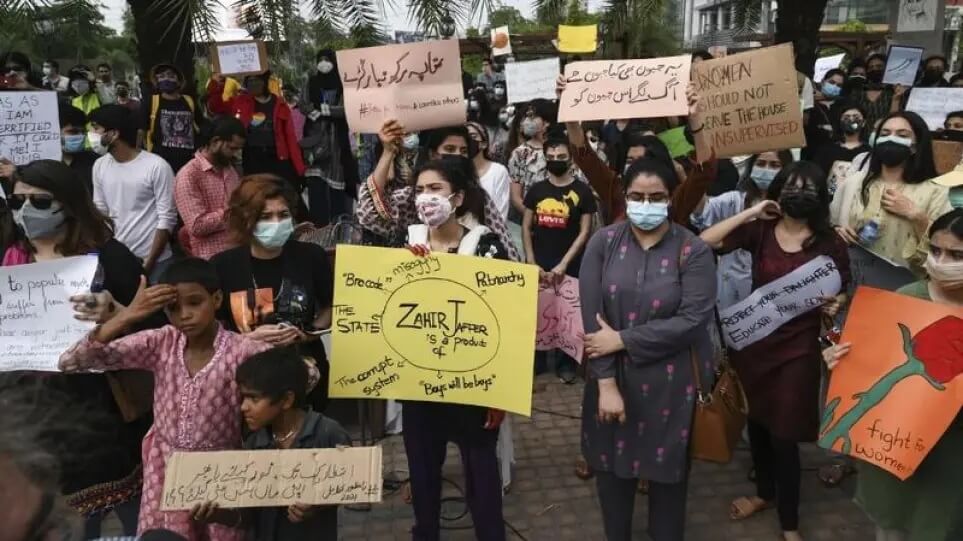Nur Mukadam, 27, the daughter of a former Pakistani diplomat, was beheaded in a wealthy district of the capital on July 20.
A gruesome assassination in the heart of Islamabad involving families from the privileged elite of Pakistani society made headlines last week, sparking a national outcry over female genital mutilation in the South Asian country.
The 27-year old Nur Moukantam , daughter of a former Pakistani diplomat, was found decapitated in a wealthy district of the capital on 20 July. Police have charged Zahir Jaafar, a U.S. citizen and the offspring of one of Pakistan’s richest families, with murder.
Investigators say the two were friends, and that Jaffer dragged Mukadam , the daughter of the former Pakistani ambassador to South Korea, to his home, held her there for two days and then brutally murdered her.
Hundreds of women are murdered every year in Pakistan and thousands more are victims of brutal violence, but very few cases receive constant media attention and only a small number of perpetrators are punished.
This murder, however, which touched a small section of society that was considered untouchable by this systemic injustice, caused a public outcry unlike any other recent case.
“The status of the families involved, the family of Zahir Jaafar, and of course Nour’s father, who was a former ambassador, and the fact that this happened within the elite circles of Islamabad … all of which together undoubtedly drew more attention to her. the case “, said Nida Kirbani , Assistant Professor of Sociology at the University of Management Sciences of Lahore.
The assassination of Mukadamhas become the most widely reported female homicide in recent history. Social media was filled with angry comments as protests and vigils were held in major cities, as well as by Pakistanis in the diaspora and even in distant lands such as Canada and the United States.
Faced with public outrage, the Jaffer family published full-page newspaper articles distancing themselves from the murder and calling for justice.
Life for women in rural Pakistan is markedly different from that in urban centers, especially in Islamabad, where chic cafes and malls cater to a mix of wealthy intellectuals, government officials, diplomats, expatriates and foreign journalists.
For many women in the country’s capital, even this image of freedom and security has been shattered.
“I have daughters too, and I worry day and night if this happens to my daughter, who will stand by me?” Amna Salman Bout told Reuters during a vigil for Mukadam in Islamabad this week attended by hundreds. people. “When someone mistreats us, we should also make a hashtag”, she said, referring to the hashtag #JusticeForNoor that has flooded Twitter in Pakistan.
“All the women I spoke to after Nour’s case are talking about them with an increased sense of fear from the men around her,” said Benazir Shah , a Lahore-based journalist. He said some say they can not sleep at night.
As daily upheavals in the trial unfold daily in the headlines of national media, human rights organizations in Pakistan say the government must pass a landmark bill against domestic violence in order to alleviate some of the anger.
The bill streamlines the process of securing restrictive measures, and adopts a broad definition of violence to include “emotional, psychological and verbal abuse”.
Earlier this month, lawmakers consulted an Islamic academic council on whether the law is in line with Islamic principles.
The Kimpla sanctified , who heads the council, told Reuters that the bill only informally discussed, but he feels that the ambitious language can not be accepted by the conservative society of Pakistan.
“Does this mean that a daughter or husband can protest when a father or husband prevents her from leaving the house?” That may not be acceptable to all Pakistanis. “, he told Reuters.
“We all agree on the goal [which is] to end violence against women … but our sense is that this bill can actually provoke new social tensions and lead to more domestic violence,” Ayaz added.



